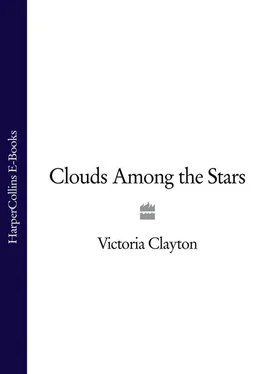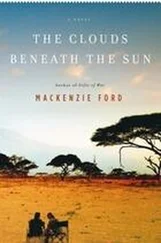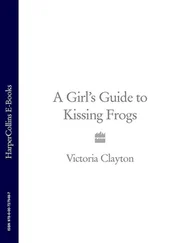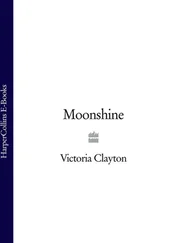VICTORIA CLAYTON
Clouds Among the Stars

Cover
Title Page VICTORIA CLAYTON Clouds Among the Stars
One
Two
Three
Four
Five
Six
Seven
Eight
Nine
Ten
Eleven
Twelve
Thirteen
Fourteen
Fifteen
Sixteen
Seventeen
Eighteen
Nineteen
Twenty
Twenty-One
Twenty-Two
Twenty-Three
Twenty-Four
Twenty-Five
Twenty-Six
Twenty-Seven
Twenty-Eight
Twenty-Nine
Thirty
Thirty-One
Thirty-Two
Thirty-Three
Thirty-Four
Thirty-Five
Thirty-Six
Thirty-Seven
Thirty-Eight
Thirty-Nine
Forty
Forty-One
Forty-Two
Forty-Three
Forty-Four
Keep Reading
About the Author
Also by the Author
Copyright
About the Publisher
The day my father was arrested for murder began promisingly. It was early November. Usually by mid-autumn the walls of my attic room were spotted with damp and the ancient paraffin heater had to be left on all night. On this particular day the sky was like opaline glass faintly brushed with rose and there was a seductive mildness in the air. I felt unusually hopeful about my life and prospects. I was young – twenty-two – almost certainly in love, and I had a vocation. I was going to be a poet. I could not remember who said that all was for the best in this best of all possible worlds but I was prepared to put money on it.
Through the window beside my bed the remaining leaves on the topmost branches of the tulip tree looked as though they had been dipped in bronze. I began to compose a line. ‘Bronzed leaves unfurled like faerie banners –’ Banners? Perhaps ‘pennants’ was better. I got out of bed, put on my writing robe, sat at my desk and sharpened my pencil while I thought.
Pennant, banner, flag, burgee – no, wholly unsuitable, making one think of pink gins and yacht clubs – what about ‘oriflamme’? That was a beautiful word and perfect for a pastoral epic. I abandoned the leaves altogether and thought about my work in progress, entitled ‘Ode to Pulcheria’. Since I had given up writing poetry about myself I seemed to be getting on much better. I had written twelve stanzas and was gratified and disgusted in equal amounts. It had quite a zip to it, but it would keep turning into a poem by somebody else.
I turned again to Nature for inspiration and saw that Mark Antony was stalking a sparrow. I banged on the glass. He looked up in annoyance as the bird flew off. Considering Mark Antony’s remarkable girth and the brightness of his ginger fur it would have to be a particularly stupid, short-sighted bird to allow itself to be caught, but I do hate Nature’s predatory schemes. I waved to show all was forgiven and caught the sleeve of my writing robe on the edge of my desk.
I looked sorrowfully at the long tear. It was a beautiful robe and one of my most treasured possessions, dark-blue silk velvet embroidered with silver stars and gold lozenges. My father, Waldo Byng, had worn it playing Prospero in an acclaimed production of The Tempest . He had received wildly enthusiastic notices and been much lionised for a time. It would not be putting it too strongly, even allowing for family partisanship, to say that my father was still one of the most famous actors of his day. But the Prospero role had been in 1973, five years ago. Since then, things had not gone quite so well with him.
It is difficult to say what had gone – not wrong exactly, but slightly awry. Experimental theatre was all the rage so there were a lot of classical actors wanting the few good parts available. Probably being made a fuss of went to my father’s head. He had turned down several leading roles on the grounds that they were insufficiently ‘mesmeric’. He had thought himself so deeply into the part of Prospero that he could not stop being him. He was convinced he possessed magic powers and for a time our house was crammed with amulets, scarabs, lamps, rings, wands, pendulums and philtres. He offered to lay hands on every invalid he met. A Russian painter, who had TB, actually got better and my father exhibited Serge’s miraculously pink cheeks and red lips at parties as though he were a hermaphrodite chicken or a two-headed lamb. We were all sorry when Serge died a few months later.
I looked out of the window again and saw Loveday, our gardener, weeding round what my father claimed was an antique bust of Shakespeare. It was indisputably a man with a bald head, whose features were indistinguishable from burst blisters. It stood at the centre of Loveday’s maze. Originally it had taken up only a small part of what was a large garden for Blackheath, where we lived. Then Loveday had become obsessed. He had extended the maze, making it more and more elaborate until it filled almost the entire three-quarters of an acre behind the house. He had begun it in yew but in later years went over to privet because it grew so much faster. Of course it needed trimming more often as well. During the summer the drama of our daily lives was played out to the sound of clashing shears as Loveday clipped from dawn till nightfall.
Loveday had constructed the maze with the idea of baffling the Devil. He believed that all difficulties in this world were the works of Satan. Despite the ubiquity and industry of the Lord of Pandemonium Loveday was confident his maze would go some way to confound him. We children were frequently required to test the ingenuity of the newest layout and, to keep Loveday happy, even if we weren’t lost, we pretended to be. My father said Loveday was a man in a million and, though a hopeless gardener, was a wonderful illustration of Rousseau’s thesis of the boundless creativity of the untutored mind. Honestly though, when it came to wild credulity, I sometimes thought it would be difficult to choose between Loveday and Pa.
‘Harriet!’ It was Portia’s voice. She rattled the door handle. ‘What are you doing?’ I put the ‘Ode to Pulcheria’ in my desk drawer, whipped off my writing robe, stuffed it under my bed and unlocked the door.
There are seven of us in my family. My mother, Clarissa, was also a Shakespearean actor, much fêted in the fifties and sixties but now retired. The eldest of us children, and the only male, is Oberon, twenty-six years old at that time, and known to everyone as Bron. Then comes Ophelia, twenty-four, followed by me, Harriet, and then Portia, aged twenty. Then a long gap before Cordelia, now aged twelve.
Portia’s eyes looked past me, scanned the room and then returned, disappointed, to my face. ‘You’re such a dark horse. Whatever do you do up here all alone? I think you’ve got a shameful secret. You’re not in the pudding club, are you?’
Though Portia was two years younger than me, people usually thought it was the other way round. She had a fierce self-assurance while I was – am – prone to self-doubt. Beneath an ancient beaver coat my mother had put out for the jumble, Portia was wearing a white dress, not very clean, that was cut low in front. A slick of scarlet lipstick hid her pretty mouth.
‘Not as far as I know,’ I said. ‘Where are you going? You’ll die of heat in that coat.’
‘It’s going to rain later on, Loveday says. Anyway, I can take it off if I have to. I’m going to have lunch with a delicious man.’
All men were, initially anyway, delicious to Portia. I looked at my watch. ‘Isn’t it rather early for lunch?’
Читать дальше













